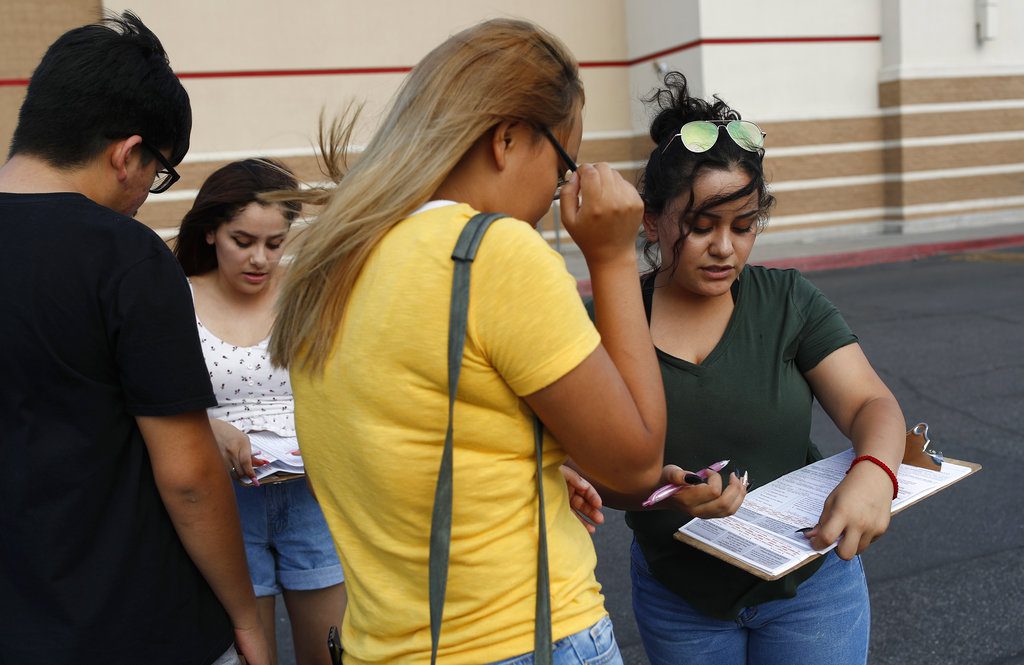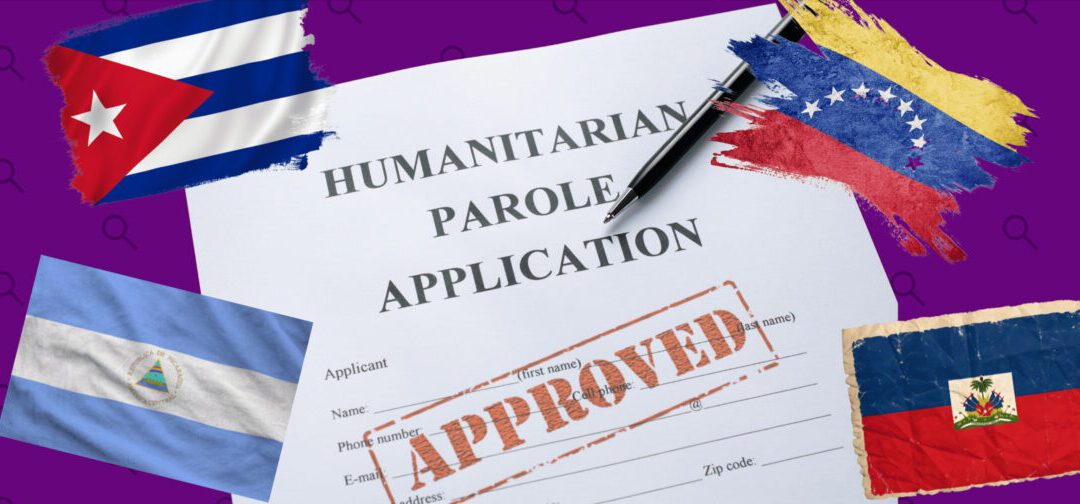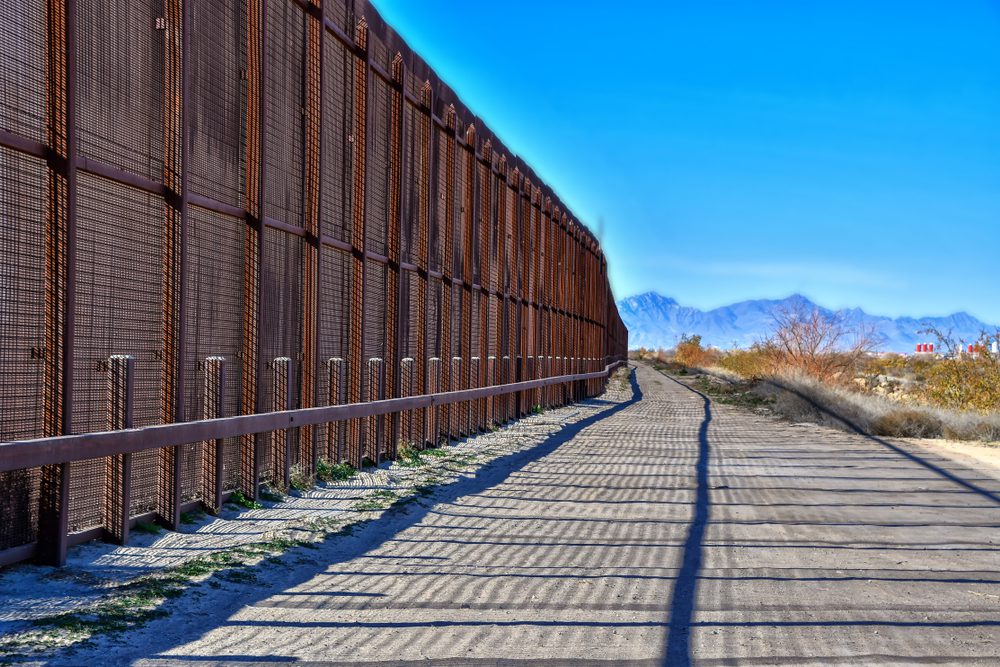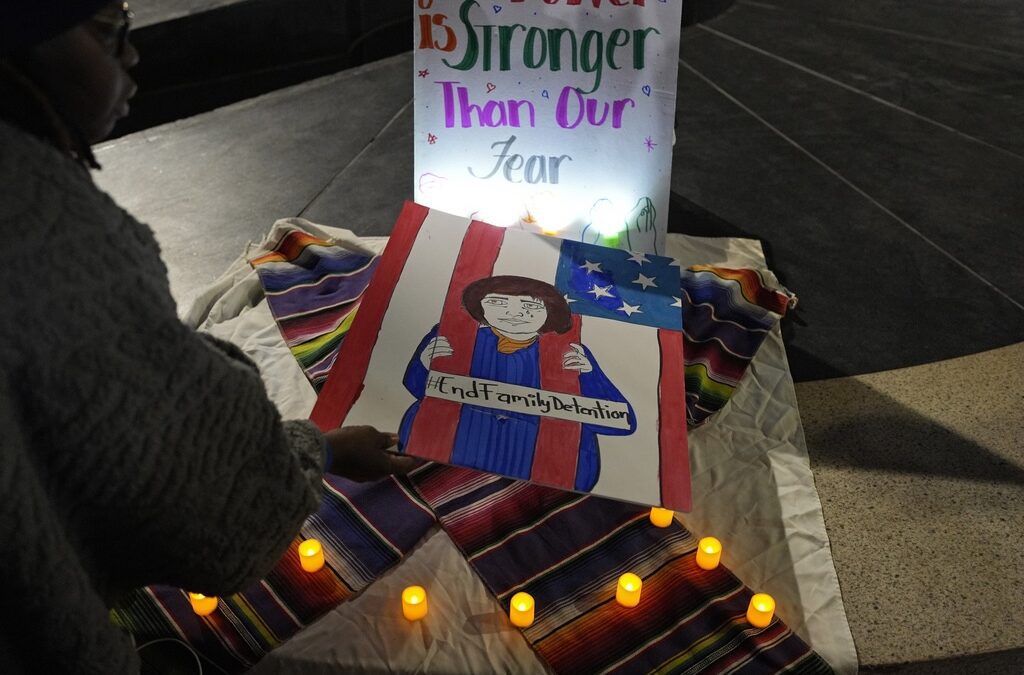
In this Aug. 15, 2018, photo, Maria Nieto, right, and Alma Romo, second from left, register people to vote in Las Vegas. Democrats in Nevada are working to register and engage Latino voters ahead of this year's midterms, hoping to recreate the big wins that the state's Hispanic and immigrant community are credited with delivering two years ago. (AP Photo/John Locher)
This article was first published by Las Vegas Sun
On day two of the Republican National Convention last week, top Republicans, including Sen. Ted Cruz, took the stage and shamelessly used the cheapest of strategies. They continuously took isolated, horrific incidents perpetrated by a small number of people and applied them to all undocumented immigrants to breed fear, hatred, and alienation. It’s ugly, it’s cruel, and it’s dehumanizing.
Trump and his Republican colleagues continuously ignore research that shows no link between immigrants and a surge in violent crime and continue to scapegoat undocumented immigrants for their own personal gain.
So what does a Deferred Action for Childhood Arrivals (DACA) recipient actually look like? Sound like? Live like? While some elected officials paint a twisted picture of immigrants like me, I know my record as the first in my family to graduate from college, own a home, and serve as the first undocumented President of the Young Democrats of Nevada proves otherwise.
My family came to the United States when I was one and a half years old – we’ve set roots in East Las Vegas ever since. Growing up in East Las Vegas is to live a story of resilience and community. It’s taking public transportation to doctor’s appointments with my mom, going to el supermercado, being able to speak in my birth country’s language, having a full house, being told en la casa solo se habla español, you can speak only Spanish at home. I call this my home, the only home I know.
It’s jarring to be told by your government and neighbors that you don’t belong here when it’s all you’ve ever known. I remember when my younger sister, who was born here in the US, went to Mexico to visit our relatives, and I could not go with her. For me, it would have been a one-way trip, cut off from my loved ones until I could somehow find a way back. I was too young to understand that my sister had privileges conferred to her as a US citizen, while I was completely deprived of them.
DACA was created in 2012 to help undocumented children — we quasi-Americans who grew up immersed in US culture, who speak and write English well enough to translate it for our parents. In order to be eligible, I had to be enrolled in school or the military, and have a clean criminal background. It’s ironic that some rhetoric dismisses people like me as criminals when the program represents the opposite demographics.
We are tax-paying contributors to the US economy, with 343,000 of us working in essential industries like healthcare and education. I wouldn’t be here without progressive leaders who protect and preserve DACA, including elected officials and the many undocumented organizers who have continuously fought for immigrant rights. Neither would the more than 200,000 DACA recipients on whom we relied to educate our children, grow and prepare our food, and protect our health.
Being undocumented has led to who I am today – an advocate, community leader, and activist. This lifeline program, DACA, has been heavily attacked and is currently paused for new applicants, even though an overwhelming 74% of Americans support providing undocumented children with a pathway to legal status.
This means that no new applicants are being processed, and DACA recipients like me must apply for renewal every two years or face deportation. I live and plan my life in two-year increments, anxiously fearing what might happen if my renewal gets rejected, denied, or is simply backlogged. I’ve known many people in my community who lost the ability to legally work, drive, or go to school because their DACA status expired while they were waiting for the renewal. This is crippling for people trying to make a future for themselves.
Since 2015, I have renewed my DACA status five times. That’s five times that I waited in limbo and had to consider the unthinkable: being forced to leave my family and friends, never being part of the community I grew up in, giving up on my dreams and everything I’ve built here, and starting over in a country that I am unfamiliar with. It’s terrifying and bleak, but I do my best to live in the moment and practice gratitude.
The rhetoric used at the RNC is yet another example of how immigrants are consistently lumped together in a horrific and negative light. The claim that the country I’ve been lucky to grow up in is a rat’s nest because of its immigrant population and the continuous generalization that all immigrants are murderers and rapists left me astounded and disappointed by the continued dehumanization of undocumented people like myself.

Bienvenidos a la guía para inmigrantes de El Nevadense
Esta guía fue creada con el propósito de informar y apoyar a las personas de nuestra comunidad que están navegando por el complejo sistema...

Nueva tarifa de $1,000 para trámites de parole humanitario: cómo se paga y quiénes están exentos
Si sólo tienes unos segundos, lee estas líneas: Desde el 16 de octubre de 2025, el DHS activó una tarifa de $1,000 dólares a quienes obtengan el...

Juez prohíbe a ICE trasladar a centros de adultos a menores no acompañados al cumplir 18 años
Juez impide a ICE trasladar automáticamente a centros de adultos a los menores extranjeros no acompañados una vez que cumplen 18 años Si sólo tienes...

Metro’s cooperation with ICE violates state law, says ACLU of Nevada lawsuit
By Dana Gentry, Nevada Current The American Civil Liberties Union of Nevada is challenging the Las Vegas Metropolitan Police Department’s agreement...

Cómo preparar un plan de emergencia migratoria antes de que sea demasiado tarde
En los últimos meses, hemos visto un cambio profundo en las políticas de inmigración en Estados Unidos. Aumentan los operativos de ICE en...

Así puedes localizar a un familiar detenido por ICE: guía paso a paso
En los últimos meses han resurgido las detenciones en operativos laborales y revisiones de rutina: Telemundo documentó cómo agentes acorralaron a...




